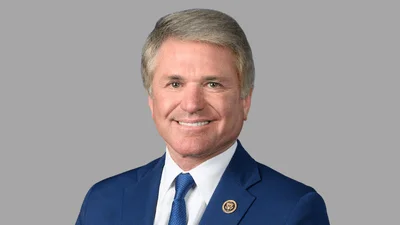WASHINGTON, D.C. -- Rep. Jim McDermott, chairman of the Ways and Means Income Security and Family Support Subcommittee, called for swift action in the House to pass his legislation to extend unemployment benefits after new data showed continuing and growing weakness in the labor market. Today`s Department of Labor employment report showed the number of jobs in the economy dropping for the third consecutive month (declining by 232,000 since December), and the number of unemployed Americans rising by 434,000 in March (for a total of 7.8 million).
"The President ditched the U.S. economy with his disastrous war in Iraq and this new unemployment data yesterday and today are casualty reports on the increasing number of Americans who are losing their jobs and facing an extended period of unemployment," Rep. McDermott said.
The subcommittee that Rep. McDermott chairs has jurisdiction over the unemployment insurance system and he has scheduled a hearing for next Thursday, April 10 to highlight the need to extend unemployment benefits with testimony from economists and other experts including Dr. Rebecca Blank, who served as a member of President Clinton’s Council of Economic Advisors.
"The American people need our leadership, not in words, but with legislation that can build a bridge from economic upheaval to economic stability."
McDermott said that when he first introduced legislation in January to extend benefits, it was done with the idea that it would be ready if the economic conditions grew worse. Now, there is no question the economic uncertainty has devolved into economic upheaval for millions of Americans.
McDermott wants to see benefits extended for 13 weeks in every state, plus an additional 13 weeks for states where the unemployment rate is 6% or more.
McDermott said there are ample reserves in the existing federal unemployment trust funds to offset the cost of extending unemployment benefits without the need for new taxes or fees.
"We have more long-term unemployed Americans today than the last time Congress and President Bush agreed to provide extended benefits in 2002," McDermott said. "Ordinary Americans Face Extraordinary Economic Circumstances and It’s Time to Act."
The attached chart illustrates the number of long-term unemployed workers now compared to when Congress provided extended unemployment benefits in 1991 and in 2002.








